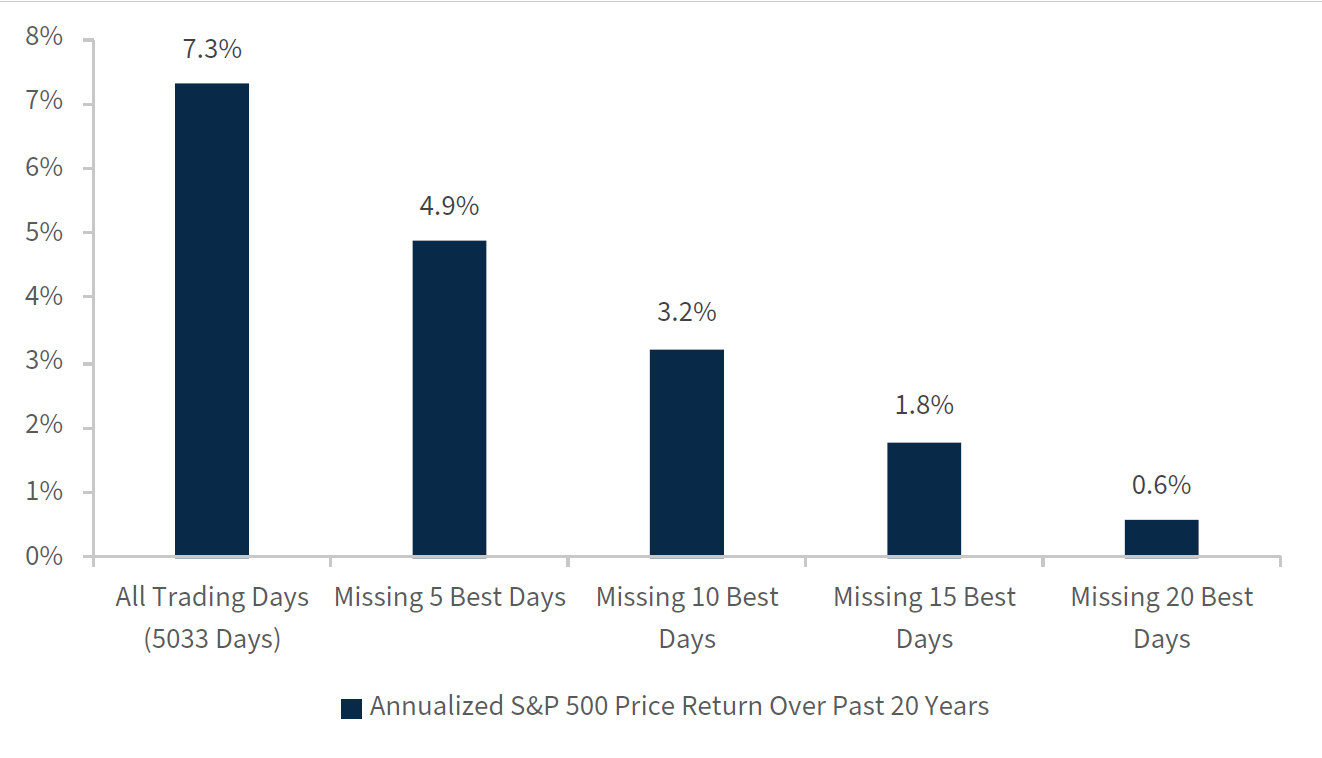Over Time, Markets Have Proved Positive and Resilient
From the Desk of Amanda Burrows, CFP®
First, thank you for entrusting us with your financial needs. We don’t take this lightly and want to make sure each of you understand we are here for you. For those who are cringing at economic headlines, we thought it prudent to send some data behind our investment strategy. With inflation, interest rate hikes, the War in Ukraine, and an ugly start to the markets, there is plenty of anxiety to go around. We hope the following article will put you at ease and re-focus your attention toward long-term investing. For those of us who have the urge to “do something” during these times, we would recommend practicing frugality, discipline, and patience. Focus on decisions within your control and contact your advisor when your personal financial situation changes. Each storm feels different but we will weather this one and many more.
Once again, thank you for trusting us with your investment management needs. Our doors are always open!
Over Time, Markets Have Proved Positive and Resilient
Markets and Investing
When markets react, consider a broader historical perspective before changing your financial course. Market volatility can often trigger emotional responses in investors, responses that can impact judgement and potentially affect long-term plans.
These periods of volatility are an opportunity to connect with your advisor, enabling them to act as a sounding board for your concerns. By talking about current events in light of your overall financial plan, your advisor can provide reassuring perspective to help you stay the course or readjust if needed.
Pullbacks throughout history
Pullbacks can make you want to pull up stakes and run – a reaction that’s often a mistake, especially for long-term investors. The right knowledge and historical perspective can help us avoid making investment decisions based on emotion rather than strategy.
By looking at the market over a long period of time, we’re provided with a true testament of resiliency. Each decline along the way felt terrible, and declines today feel just as uncomfortable. But when we track the overall growth the market has achieved, it’s clear that there are benefits to persistence, patience and commitment.
Remember:
- The stock market is cyclical.
- You will likely encounter numerous pullbacks and/or corrections as a long-term investor.
- A study of the stock market shows its resilience.
- In the long run, the upturns have always been stronger than the downturns.
Stocks overcome bumps in the road
Growth of $10,000 in the S&P 500 (Click image to enlarge)
Source: Morningstar. This chart is for illustrative purposes only. This analysis does not include transaction costs, which could reduce an investor’s return. Growth of $10,000 in the S&P 500 1/31/40 – 12/31/21.
Staying invested through volatile times
Timing the market is a near-impossible task. By staying invested, even through periods of volatility, investors can increase their chances of achieving higher returns.
Take a look at the chart below illustrating how missing even a few market days can impact overall returns. Over the past 20 years, the S&P 500 has grown at an annualized rate of 7.3%. However, removing only the five best trading days over that 20-year period would bring the index’s total growth down to 4.9%, and missing the 20 best trading days pulls its return to only 0.6%.
(Click image to enlarge)
As of 12/31/21. Source: Raymond James Investment Strategy research. This example is for illustrative purposes only and is not indicative of the performance of any investment. It does not reflect the impact of taxes, management fees, or sales charges.
Don’t inadvertently miss out on important recovery days by trying to time the market’s every movement. Instead, speak with your advisor about how your long-term plan is positioned to weather short-term volatility – and discuss whether temporary pullbacks are actually an opportunity to strategically add to your portfolio.
Remember:
- Generally, returns have been less volatile over longer holding periods.
- Returns over time have been positive in most cases.
- Even a few strong market days can significantly impact total returns.
- Dollar-cost averaging can help take advantage of volatility.
Especially during declines, your advisor can act as a sounding board for your concerns. By talking about current events in light of your overall financial plan, your advisor can help provide reassuring perspective to help you stay the course and take advantage of any opportunities that tumultuous markets can present.



